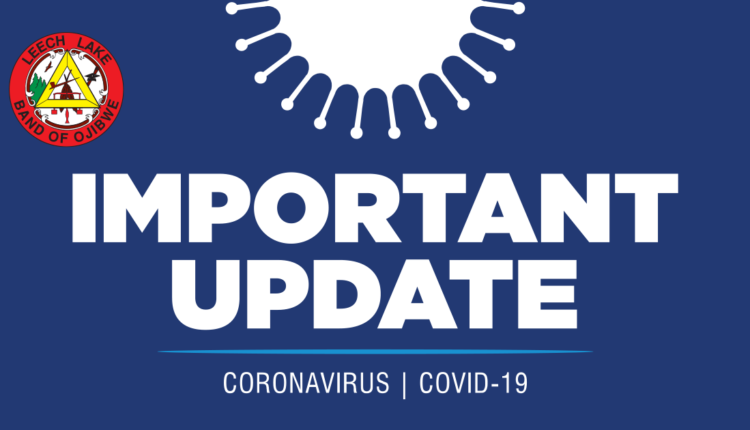CASS LAKE, MN- Today the CDC and FDA released a statement that they will be reviewing the Johnson & Johnson (J&J), also referred to as Janssen, COVID-19 Vaccine due to reports of blood clots in six participants. They have also recommended a pause in the use of this vaccine while these cases are investigated and reviewed.
Leech Lake has previously administered the J&J vaccine and encourages any person that has received the J&J vaccine who develops severe headache, abdominal pain, leg pain, or shortness of breath within three weeks of receiving their vaccination to contact their health care provider.
In accordance with FDA and CDC recommendations, the Leech Lake Band of Ojibwe Health Division will pause providing the J&J vaccine until further notice. If you have any questions, please contact your healthcare provider.
Right now, the adverse reactions appear to be extremely rare with only six reported cases and nearly 7 million J&J vaccines administered nationally. It should also be noted that this affects the J&J vaccine ONLY, side effects related to the Moderna and Pfizer vaccines are not part of this developing situation.
Read the full CDC and FDA statement below:
Joint CDC and FDA Statement on Johnson & Johnson COVID-19 Vaccine
The following statement is attributed to Dr. Anne Schuchat, Principal Deputy Director of the CDC and Dr. Peter Marks, director of the FDA’s Center for Biologics Evaluation and Research
As of April 12, more than 6.8 million doses of the Johnson & Johnson (Janssen ) vaccine have been administered in the U.S. CDC and FDA are reviewing data involving six reported U.S. cases of a rare and severe type of blood clot in individuals after receiving the J&J vaccine. In these cases, a type of blood clot called cerebral venous sinus thrombosis (CVST) was seen in combination with low levels of blood platelets (thrombocytopenia). All six cases occurred among women between the ages of 18 and 48, and symptoms occurred 6 to 13 days after vaccination. Treatment of this specific type of blood clot is different from the treatment that might typically be administered. Usually, an anticoagulant drug called heparin is used to treat blood clots. In this setting, administration of heparin may be dangerous, and alternative treatments need to be given.
CDC will convene a meeting of the Advisory Committee on Immunization Practices (ACIP) on Wednesday to further review these cases and assess their potential significance. FDA will review that analysis as it also investigates these cases. Until that process is complete, we are recommending a pause in the use of this vaccine out of an abundance of caution. This is important, in part, to ensure that the health care provider community is aware of the potential for these adverse events and can plan for proper recognition and management due to the unique treatment required with this type of blood clot.
Right now, these adverse events appear to be extremely rare. COVID-19 vaccine safety is a top priority for the federal government, and we take all reports of health problems following COVID-19 vaccination very seriously. People who have received the J&J vaccine who develop severe headache, abdominal pain, leg pain, or shortness of breath within three weeks after vaccination should contact their health care provider. Health care providers are asked to report adverse events to the Vaccine Adverse Event Reporting System at https://vaers.hhs.gov/reportevent.htmlexternal icon.
View full statement: https://www.cdc.gov/media/releases/2021/s0413-JJ-vaccine.html

